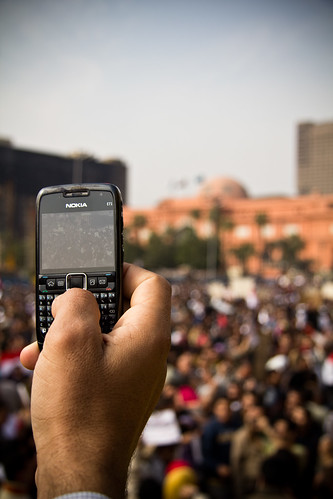“I get more respect now,” she says. “Before people in the village wouldn’t talk to me but they do now.”
~Jamirun Nesa on owning a business (BBC News, October 2002)

Information and Communication Technologies (ICTs), especially mobile phones, can have a huge impacton the business opportunities available to women in developing countries by providing access to markets, conserving time, connecting women with other business owners and fostering empowerment.
A common business opportunity is to sell goods that are either grown or handmade; however, many of the poor, especially women, have restricted access to markets because of time constraints, lack of transportation and safety concerns, among other factors. A cell phone easily addresses all of these issues. Without leaving their homes, women can call to check prices, find buyers for their products or place orders.
Additionally, even if women want to start businesses, they are typically responsible for the bulk of household activities and childcare, which is time consuming. In this respect, the efficiency and time saved by using a cell phone is invaluable. The International Center for Research on Women (ICRW), in partnership with the Cherie Blair Foundation for Women, recently released a report focusing on how connectivity can create entrepreneurial opportunities for women in India. One of the profiled entrepreneurs, Sunita, runs a silkworm breeding business. She not only uses her cell phone for market access, but also to remotely activate a water pump for her silkworm shed – saving her the 3-4 km walk to turn it on and off.
Another benefit of ICTs which is raised in ICRW’s report is that women can connect with other entrepreneurs. Social norms, distance and time constraints that would usually prevent these groups from forming are eased by cell phone ownership. As a result, many women form self-help groups with other entrepreneurs to establish business connections, stimulate creativity, identify best practices, answer questions and serve as a general support network.
Finally, the phones themselves can become a business. In places where cell phones or landlines are scarce, individuals who have a mobile can sell minutes – a modern phone booth. As an example, the Grameen Foundation established a program to give small loans to poor women to start this type of business.
Overall, by allowing women to access markets and making tasks less time-consuming, cell phones lower or eliminate some of the barriers to starting and operating a business. In turn, owning a business leaves many women feeling incredibly empowered. Women entrepreneurs can challenge social norms, gain respect from their family and community, improve their individual confidence and set examples for future generations.
From a policy perspective, programs that focus on increasing women’s access to ICTs are a relatively inexpensive way to address many problems that women entrepreneurs face in the developing world.
On an individual level, you can donate old phones to organizations that reuse or recycle them to provide phones to developing countries. Some organizations, such as Hope Phones, will even accept broken phones and pay for shipping.

